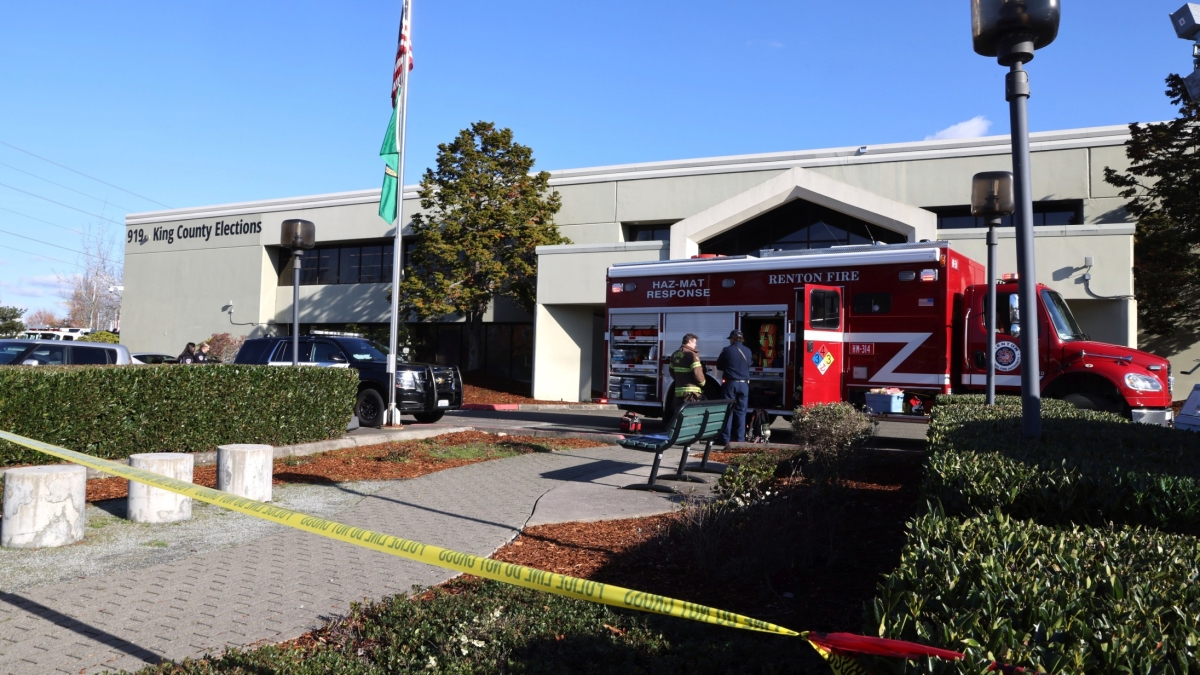Is interfering with elections in the United States a form of domestic terrorism? Does it happen enough to be a pattern? It seems likely. In early November, election offices in five states received suspicious envelopes laced with fentanyl, forcing staff to evacuate and slowing down the counting of ballots.
I was disheartened to hear that my home state of Washington was one of the five. Four county offices within Washington were evacuated after receiving suspicious envelopes. I felt angry and hurt that people went to great lengths to threaten poll workers and send a message of fear in a state that I consider to be civil and peaceful. Interfering with elections is a form of domestic terrorism and the arrival of suspicious envelopes in early November is part of a larger pattern of electoral threats and violence.
Unfortunately, political violence and electoral violence is growing in the United States. A recent poll done by the Public Religion Research Institute and the Brookings Institute found that 23% of Americans believe violence is an appropriate response to “save the country.” Further, 33% of Republicans and 13% of Democrats believed that statement to be true. I am worried about these statistics because the numbers of people who believe violence is an appropriate response have increased since the last poll in 2021, pointing to the possibility that this is becoming normalized.
Although the most notorious examples of electoral violence are at the federal level, like Jan. 6, 2021, I argue that threats at the state and local level occur more frequently. The suspicious envelopes from early November fit into this growing pattern. Since local and state officials are more accessible to Americans than their federal representatives and elections seem to be a key part of conspiracy theories like that around the 2020 presidential election, I believe these threats are more dangerous because they occur more often. In addition, elections hinge on the counties and states that administer elections and count votes. Year after year, election officials receive threats and acts of violence. This slowly chips away at our country’s democratic principle of peaceful elections. And election officials are less likely to stay in their jobs. How can we expect these people to do their job if threats are a norm? How can we reasonably expect people to take up that kind of job or volunteer position knowing the very real likelihood of violence? It is a very hard pill to swallow.
Looking ahead to the 2024 presidential election, better protections must be installed to keep election workers safe. We cannot let people who wish to use violence and fear to influence elections succeed. We also need to call violence in elections what it is: domestic terrorism. Two secretaries of state belonging to states targeted with suspicious letters, Washington Secretary of State Steve Hobbs and Georgia Secretary of State Brad Raffensperger, both identified the envelopes as acts of terrorism. I understand that domestic terrorism is not a term that is used lightly; it evokes memories of painful moments in American history like the Oklahoma City bombing or 9/11. However, I think it is necessary to use this term to describe this pattern of violence because it is easier to develop clear law enforcement protocols to prevent attacks, build case law that clarifies our laws on domestic terrorism and increases cultural awareness of what domestic terrorism can look like.
Unfortunately, the violence is not limited to elections or election workers. Threats towards judges at the federal, state and local level, mayors, local politicians, federal politicians, school board officials and health officials have frequently occurred in the last few years. I do not mean to sound pessimistic or depressing; in fact, it is with a very heavy heart that I write this article. Naively, I waved off the trend of election officials receiving threats as happening in far away states. I received a rude awakening when I found out four counties in my home state were recipients of yet another instance of electoral violence. Thus, I believe it is time for us to act. With the 2024 presidential election on the horizon, we must protect election workers and make it clear to would-be perpetrators that democracy will not be silenced.
Sarah Kenny, FCRH ’24, is a history and political science major from Seattle, Wash.









































































































































































































